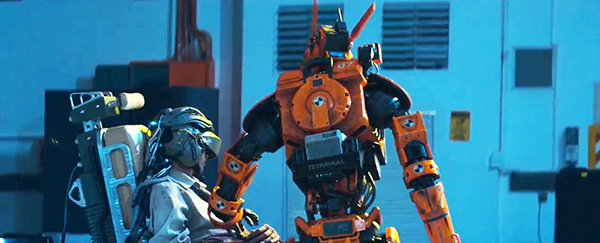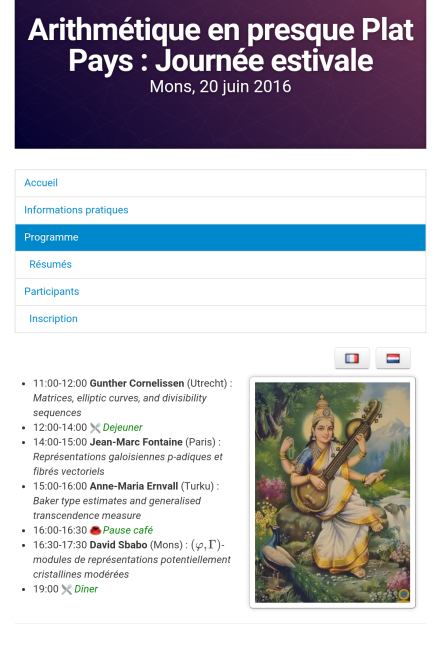A few weeks ago I revised my views about “Why I love Mathematics?“. It has been two years since I have been trying to get into mainstream mathematics research. It will take another four to five years for me to start contributing to mainstream mathematics research. In this post I will try to add a bit more to what I wrote an year ago.
Though mathematics is the main thing my life revolves around, it’s not the only thing. I love doing few other non-mathematical things. Few months ago I watched the movie “Ship Of Theseus” by Anand Gandhi , and it is one of the few movies I have agreed to watch twice. In case you are curious to know about Theseus’ paradox, I will suggest this ted-ed video
As you may be aware of, there are a lot of people who are not mainstream mathematicians (i.e. working in a Research Organization in a specific research area) but still claim to love mathematics. They are called recreational-mathematicians (like Dattaraya R. Kaprekar, Tanya Khovanova,…), maths-popularizer (like Eric Temple Bell, Constance Reid,
Simon Singh,… ), maths-historians (like Bartel Leendert van der Waerden, Jacqueline Anne Stedall,… ) etc. But I want to become a mainstream-mathematician (like full time professors in research organizations). Why?
I want to become immortal (i.e. to exist as long as humans exist).
You may be think that I have lost my mind, but please continue reading…
I hope we agree that our wish to live (as opposed to fear of death) motivates us to live. Paul Erdős used to tell following story about his second discovery as a child (first being that of negative numbers):
I knew I would die. From then on, I’ve always wanted to be younger. In 1970, I preached in Los Angeles on ‘my first two and a half billion years in mathematics.’ When I was a child, the Earth was said to be two billion years old. Now scientists say it’s four and a half billion. So that makes me two and a half billion….
I believe that Paul Erdős has indeed gained immortality, we just keep listing about his conjecture being proved now and then (recent one: Erdős-Rado sunflower problem).
From a biologist’s point of view (by the way, I also study a bit of Biology), our body along with our consciousness defines us as an individual. So, for a human to become immortal his/her body as a whole must be preserved as it is. But, biologists have faced a dilemma of conserving body versus consciousness. If you preserve body, by eliminating defects from our body at DNA level (since not every organ can be transplanted) , the you lose the distinctiveness in personalities (like clones) since all will be perfect and thus identical (causing threat to evolution). If you preserve consciousness, by transferring it to an artificial body (which will become reality with advent of quantum computing), then you lose your body (a major part of your personality).

Consciousness transferred to a robotic body in the sci-fi movie Chappie (© 2015, Sony Pictures Entertainment)
But, I believe that the only way to become immortal is by publishing (articles, books, movies, songs,…) and propagating (lectures, discussions,…) your ideas among others. As we know that our body is immortal in a sense that all its atoms remain as such (law of conservation of mass, energy…), and form various molecules like the molecules of life. For example, say an animal dies in a forest (without human intervention). After few days the microorganisms inside & outside the body (which are much more than the number of cells of that animal) will start decaying the body and release different chemicals. These chemicals will attract different insects which will start consuming the body and finally scavengers will completely clean the flesh part. The bones will take longer time depending on environmental conditions. Now these insects and scavengers will be consumed by bigger animals (and eventually, may be, by humans). In this way the atoms from the dead animal will disperse among various life-forms but will never cease existence. In case of humans, we make this process to take longer time by doing various rituals. So, if I am able to propagate all of my ideas (which will also evolve over time), then I am immortal.

Goddess Saraswati (symbol of knowledge in Hindu Mythology) used to popularize a mathematics conference in Belgium (url: http://www.mathconf.org/app-gvl-summer2016)
The immortality “ideology” which I want to adopt is actually what various civilizations have done to make their gods/goddesses immortal! You make a story about a character in written form (which they called “sacred texts”) and propagate among others (which they called “religions”). After some time the stories become part of our life and characters of that story become immortal. I view the “library of Alexandria” as power house of Egyptian civilization, since it was a major center of scholarship. Same is true for eminent people (the people about whom biographies are written and movies are made) in modern society.
In my opinion, only mainstream researchers like scientists, psychologists, economists, etc. have an opportunity to gain immortality. Whereas people like non-innovative-teachers, librarians, science-popularizers, non-research physicians, non-research engineers etc. ensure immortality of others, just like the craftsman reproducing work of ancestors again and again thus helping to keep the work alive. So, all professions are about “collecting knowledge” but what makes researchers stand apart from other professions is their ability to “create knowledge“. So all professions are important but in different prospective. For example, if you want to become powerful, become politician and so on….
I admit that my thoughts may be very childish and I in future I may change my opinion…
Pingback: Building Mathematics | Gaurish4Math
Pingback: Opinions Welcome : Should we dream? | Gaurish4Math
Wonderful! That’s a really thought provoking article..👌👌
LikeLike
Thanks!
LikeLiked by 1 person
You are very welcome… Please do make some time to visit my blog..😄
LikeLike
To be or not to be a mathematician is a question as old as math itself !! Well, what do you think?
LikeLike
Mathematics is as old as our civilizations since when we got civilized we started thinking logically (profit-loss). Earlier there was no such divisions in mathematics like number theorist, geometer, etc. There was no “history of maths” to be discussed or any need to popularize it (eg. Pythagorean society). So earlier you were not required to dedicate whole of your professional life to find new results. But today it is nearly impossible to come up with elegant ideas as an amateur mathematician since every active branch has gained lots of depth. Many a times you need to understand that branch very well to come up with something elegant.
So, though mathematics is quite old, the question of becoming a mathematician was meaningful only after Newton/Leibniz discover calculus (in an attempt to add rigour to it). Before that, in my opinion, people were amateur mathematicians, doing maths in their free time to amuse themselves. (For example, finding better ways for faster calculations lead to advancement in Algebra)
LikeLiked by 2 people
Nice post 🙂
LikeLiked by 1 person
Thanks
LikeLike